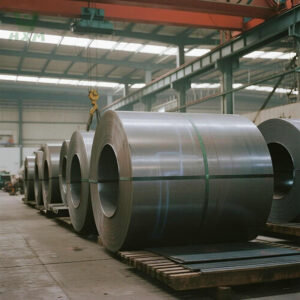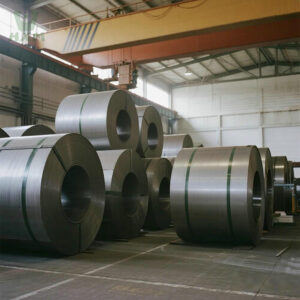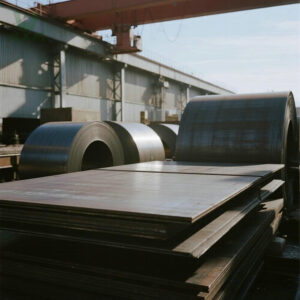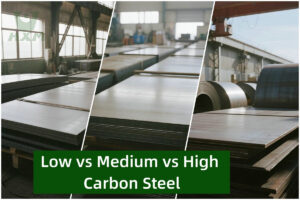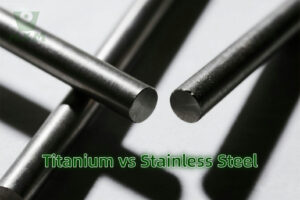
1. Introduction: Why Titanium Alloys Matter
Titanium alloys are among the most important advanced engineering materials of the 21st century. Known for their exceptional strength-to-weight ratio, outstanding corrosion resistance, and excellent biocompatibility, titanium alloys are widely used in industries where performance, durability, and safety are critical. Compared with steel, aluminum, and nickel alloys, titanium stands out for applications that demand both light weight and high strength.
2. Classification of Titanium Alloys
Titanium alloys are broadly classified based on their microstructure:
Alpha Alloys
Non-heat-treatable and highly weldable.
Excellent corrosion resistance.
Typically used in cryogenic applications and marine environments.
Near-Alpha Alloys
High creep resistance at elevated temperatures.
Suitable for aerospace engine components.
Alpha-Beta Alloys
The most widely used group, especially Ti-6Al-4V (Grade 5).
Heat-treatable, offering a balance of strength, toughness, and formability.
Beta and Near-Beta Alloys
Fully heat-treatable and capable of achieving very high strength.
Common in aerospace fasteners and landing gear components.
3. Mechanical and Physical Properties of Titanium Alloys
Strength and Fatigue Resistance: Comparable to high-strength steels but at nearly half the weight.
Corrosion Resistance: Excellent in seawater, acids, and chloride environments.
Biocompatibility: Non-toxic and non-allergenic, ideal for medical implants.
Heat and Oxidation Resistance: Stable at temperatures up to 600 °C.
Density Advantage: Titanium alloys are about 40% lighter than steel.
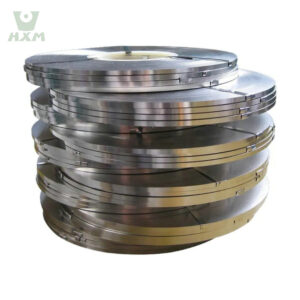
Titanium Alloy Strip / Precision Strip
Huaxiao-Alloy supplies medical & aerospace-grade Titanium Alloy Strips (0.05–5.0 mm) with ±0.005 mm tolerance. AS9100D & ISO 13485 certified. Custom slitting, annealing, global delivery. Request samples!
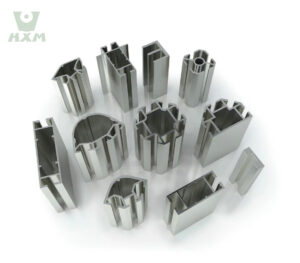
Huaxiao-Alloy manufactures high-performance Titanium Alloy Profiles (ASTM B381/ASME SB381) for aerospace, medical, and energy sectors. AS9100D & ISO 13485 certified. Custom sizes, global delivery, competitive MOQ. Request samples now!
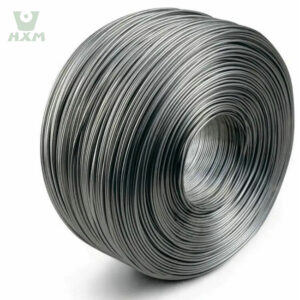
Huaxiao-Alloy supplies premium titanium wire and mesh for aerospace, medical, marine, and chemical industries. ASTM/AMS-certified, corrosion-resistant solutions with high-temperature stability. Request a quote today!
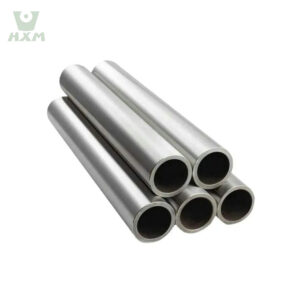
Huaxiao-Alloy – Premium titanium alloy pipe & tube manufacturer. ASTM/AMS-certified solutions for aerospace, medical, and chemical industries. Request a quote!
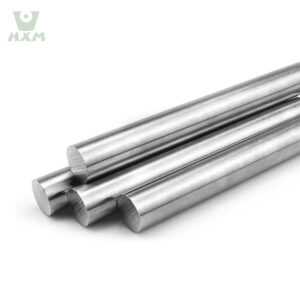
ISO 9001 certified titanium bar manufacturer supplies Grade 5/23/7 round/flat/square bars. Get AMS 4928 compliant 6Al-4V bars with full traceability. Request quote!
4. Commercial Titanium Grades and Standards
Grades 1–4: Commercially Pure Titanium
High corrosion resistance and formability.
Applications: chemical processing equipment, desalination plants.
Grade 5 (Ti-6Al-4V)
The most popular titanium alloy, combining high strength, corrosion resistance, and good machinability.
Applications: aerospace structures, medical implants, automotive parts.
Grade 7 & 12
Enhanced corrosion resistance due to palladium addition.
Applications: heat exchangers, chemical industry equipment.
Grade 23 (Ti-6Al-4V ELI)
Extra-low interstitial alloy for superior biocompatibility.
Applications: surgical implants, dental devices.
Specialty Alloys
Beta titanium alloys for extreme strength applications.
Titanium aluminides for aerospace turbine blades.
5. Processing and Manufacturing Considerations
Machinability: Titanium alloys have low thermal conductivity, causing heat concentration at the tool tip. This makes machining challenging.
Heat Treatment: Used to enhance strength and fatigue performance.
Welding: Requires an inert atmosphere to prevent contamination.
Additive Manufacturing: Titanium alloys are increasingly processed via 3D printing for complex aerospace and medical parts.
6. Applications of Titanium Alloys Across Industries
Aerospace and Defense
Aircraft structures, engine components, landing gear.
Favored for reducing fuel consumption through weight savings.
Medical Implants and Devices
Orthopedic implants, pacemaker casings, dental implants.
Titanium’s biocompatibility ensures safe long-term use inside the human body.
Marine and Offshore Engineering
Propeller shafts, submarine structures, desalination plants.
Outstanding corrosion resistance in seawater environments.
Automotive and Motorsport
Valves, connecting rods, exhaust systems.
Lightweight components improve speed and fuel efficiency.
Chemical Processing
Heat exchangers, reactors, pipelines.
Resistance to acids, chlorides, and harsh chemicals.
Electronics and Energy
Used in mobile devices, battery casings, and hydrogen energy storage.
7. Market Outlook and Future Trends of Titanium Alloys
The global titanium alloy market is projected to grow steadily, driven by increasing demand in aerospace, healthcare, and renewable energy. Emerging trends include:
Development of vanadium-free alloys for cost reduction.
Expansion of 3D printing applications for complex titanium parts.
Growth in medical-grade alloys for implants.
Use of titanium in hydrogen economy and energy storage solutions.
8. How to Select the Right Titanium Alloy for Your Project
Strength vs. Weight: Aerospace requires high strength-to-weight alloys like Ti-6Al-4V.
Corrosion Resistance: Marine and chemical industries benefit from Grades 7 and 12.
Biocompatibility: Medical fields require Grade 23.
Cost Considerations: Commercially pure grades are more affordable.
Always ensure your supplier provides certified materials according to international standards (ASTM, AMS, ISO).
Conclusion
Titanium alloys remain indispensable in modern engineering. Their unique combination of lightweight strength, corrosion resistance, and biocompatibility ensures they will continue to play a vital role in industries ranging from aerospace to healthcare. With ongoing research and advanced processing methods, the future of titanium alloys is even more promising.
Partner with Huaxiao-Alloy for Reliable Titanium Solutions
At Huaxiao-Alloy, we supply a wide range of titanium alloys, including Grades 1–4, 5, 7, 12, and 23. Our services include precision cutting, custom surface treatments, and quality testing to meet international standards. With global supply capabilities and technical expertise, we ensure that your projects benefit from the best titanium solutions.
Titanium alloys are lighter, more corrosion-resistant, and biocompatible, making them superior for aerospace and medical applications.
Titanium extraction and processing are energy-intensive. The Kroll process, commonly used, adds to cost. However, the long service life offsets the higher initial price.
Yes, but they require an inert gas shield (argon) to prevent contamination, making welding more complex than with steel.
Beta titanium alloys (e.g., Ti-10V-2Fe-3Al) can achieve very high strength, often exceeding 1,200 MPa.
Yes. Grades 2, 7, and 12 are commonly used in marine engineering due to excellent seawater corrosion resistance.

